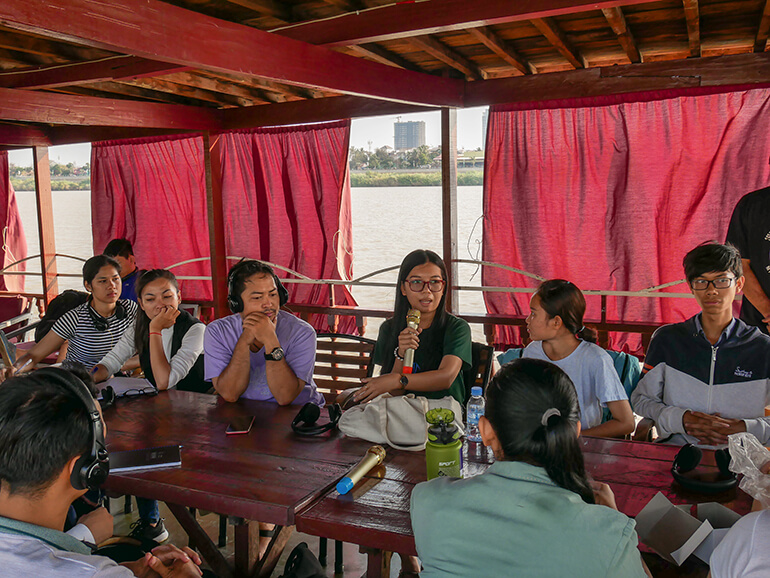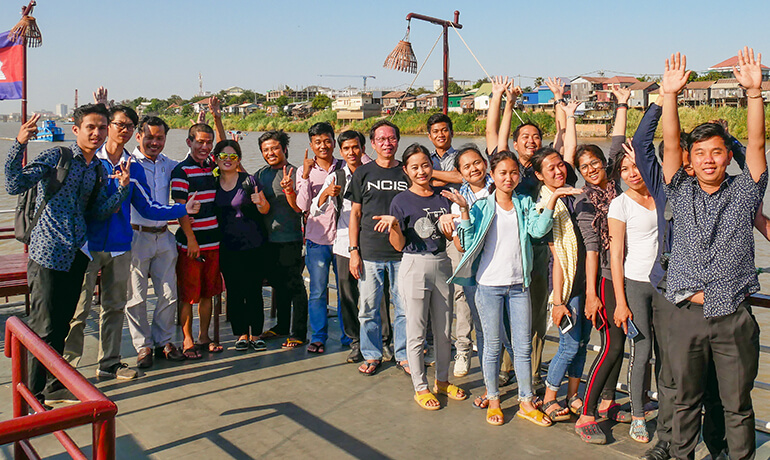
All on board for an environmental journalism training course in Cambodia
Related project
Rural Networks17 young journalists have spent two days on the Mekong and the Tonlé Sap on board a boat converted into a training room.
As part of the Rural Networks project, 17 young professionals embarked on a 5-day training course in early March to get a better understanding of climate change issues and learn about environmental journalism.
Harry Surjadi, an Indonesian science journalist and trainer, was able to count on the support of several Cambodian speakers throughout the course to talk about a range of topics, including storytelling and the safety of journalists, related to reporting on environmental issues.

In order to put what they learned into practice, participants took a boat trip up the Mekong to Koh Dach to meet the local populations living on this island close to the capital. The following day, they took a trip on the Tonlé Sap to interview Muslim and Vietnamese minorities who rely on the river's resources as their main source of livelihood.
Harry Surjadi put the emphasis on "water-related topics, which are often a gateway for tackling environmental topics." The populations met face "significant issues in terms of access to good-quality water, despite being surrounded by water." Water resource management is a major issue in terms of climate change adaptation, with Cambodia ranking among the countries most affected by climate change.

For the young journalists, the boat trip was an opportunity to work on their powers of observation from the upper deck, a key skill in environmental journalism. The trip up the rivers was a chance to see first-hand the industrial activities based along the shores, the various fishing practices and the many sand mining operations, among others… Keo Socka (Women Media Center) came to understand the importance "of using your 5 senses in the field, of careful observation, of taking notes so as to give listeners a sense of the external environment."
Leakhana Khoun from Lotus Radio "now has a better understanding of the different aspects of climate change. The training course has taught her how to approach environmental matters from different angles and, in particular, how to connect the topic to other subjects such as the economy, tourism and health." After the training course, the aim for Makara Chimm (Bayon TV) is "to a shine a light on solutions and initiatives that take the environment into account."

Sokmean Ou (Thmey Thmey) acknowledges that "there is a very limited understanding of climate change among the Cambodian population. Therefore, as journalists, we have an important role to play in informing our readers about these issues."
At the end of March, the Rural Networks project will be offering another field trip to journalists, this time with a view to meeting several farmers in the Kandal province, in partnership with GRET. They will be accompanied by several experts, with agroecology, the impact of pesticides and climate change adaptation among the key topics to be covered.


